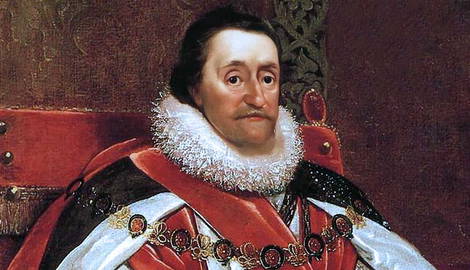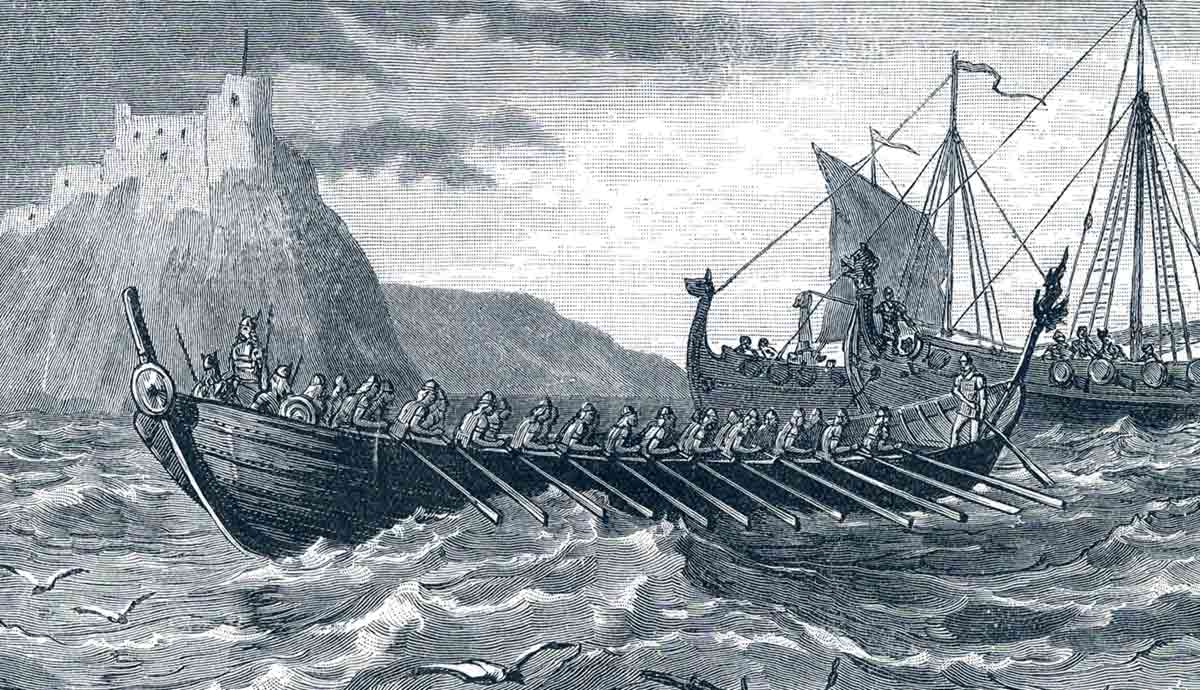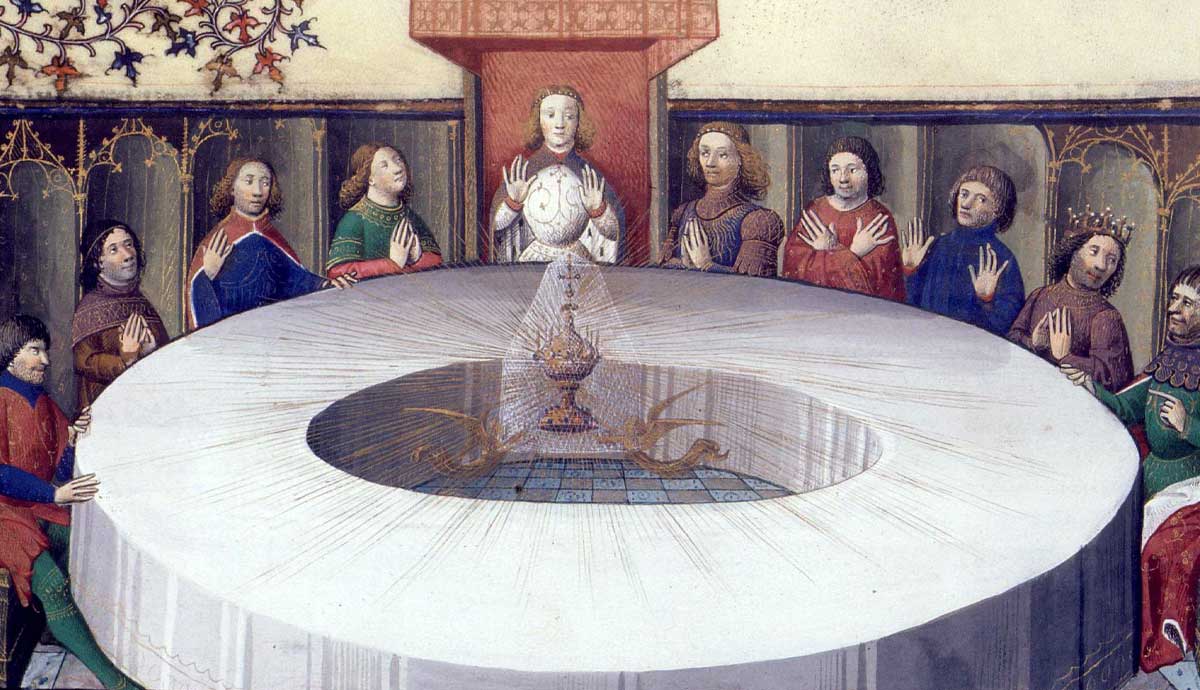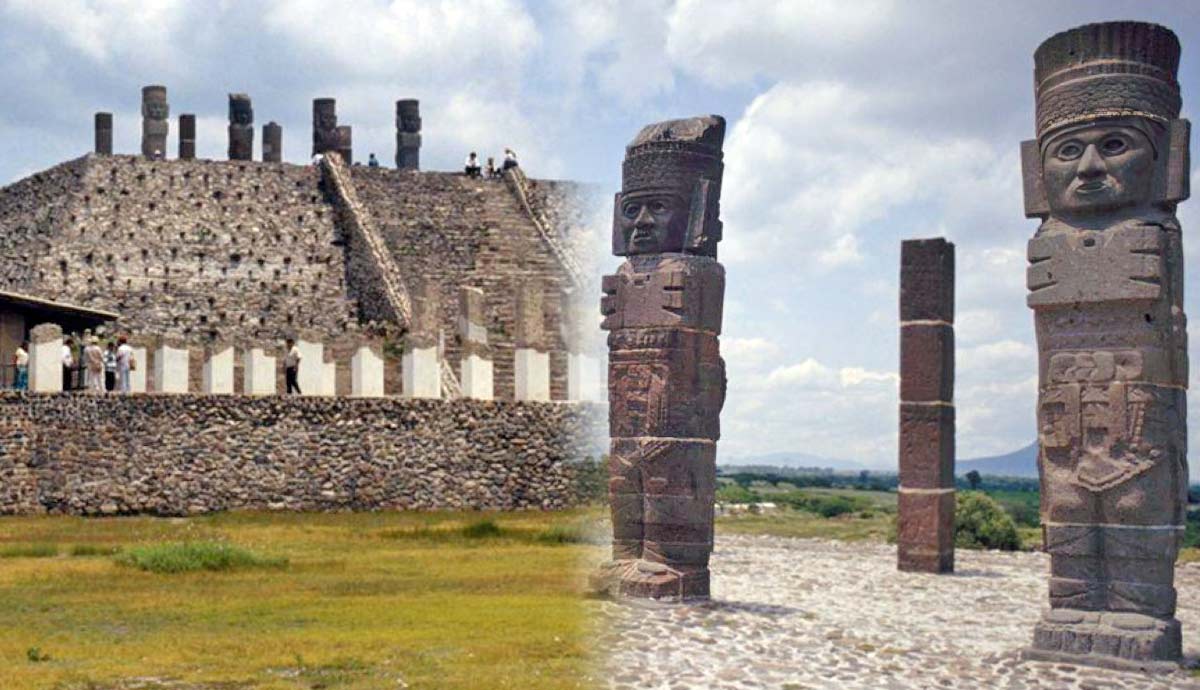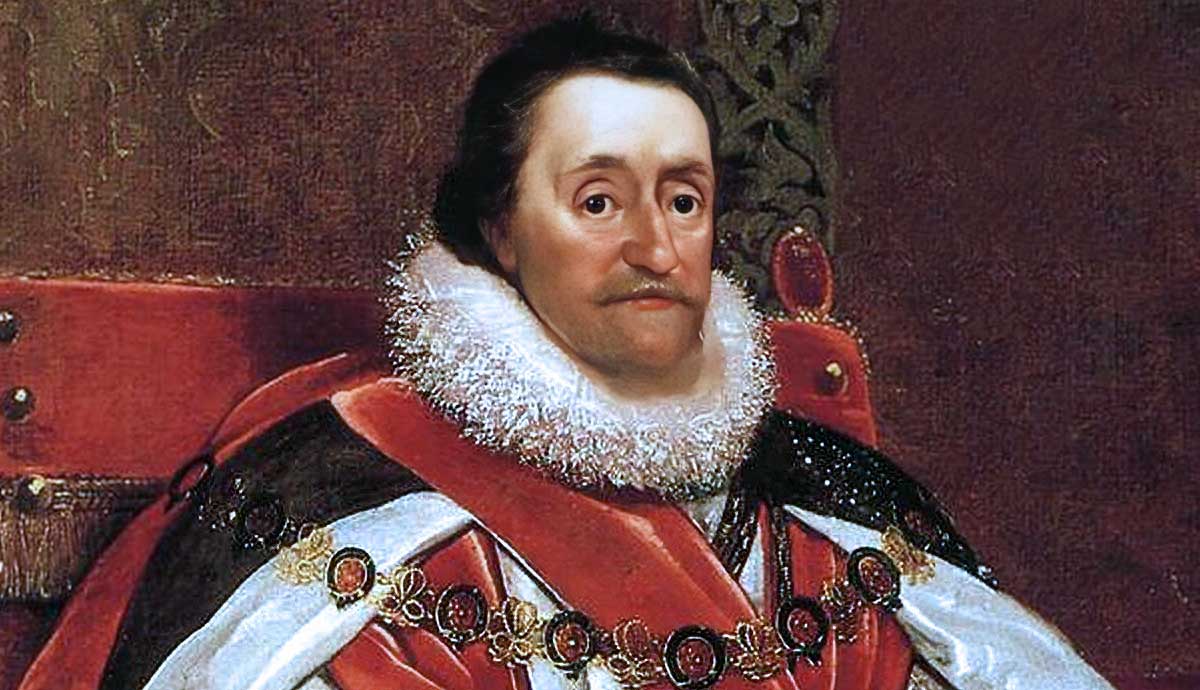
Born James Charles Stuart, son of Mary, Queen of Scots, King James inherited the Scottish throne from his mother when she was forced to abdicate on July 24, 1567. He was only an infant when this dramatic life turn took place. Through a convoluted set of circumstances resulting from his English uncle Henry VIII’s various marriages and lack of heirs, James would inherit the English throne on March 24, 1603 from Henry VIII’s daughter Elizabeth I. However, the two kingdoms would remain separate entities with separate governments, effectively making two rulers out of one person, a combination known as a personal union. Thus, he became King James VI of Scotland, and King James I of England.
King James’ Views on Governing

Put simply, James I believed he had absolute authority as king. James believed he ruled under the divine right of kings, holding an authority derived directly from God rather than the consent of the people. He wrote a pamphlet in 1598 called The True Law of Free Monarchies where he defends his theories on grounds of Biblical arguments, the laws of the kingdom, and natural law:
“First then, I will set downe the trew grounds, whereupon I am to build, out of the Scriptures, since Monarchie is the trew paterne of Diuinitie, as I haue already said: next, from the fundamental Lawes of our owne Kingdome, which nearest must concerne vs: thirdly, from the law of Nature, by diuers similitudes drawne out of the same: and will conclude syne by answering the most waighty and appearing incommodities that can be obiected.”

While James did believe in being able to rule, he also held that such rulership bore a great responsibility. He would write another treatise in 1599 intended for his sons called the Basilikon Doron, meaning “royal gift,” laying out what he saw as the responsibilities of the king toward his subjects. James viewed Parliament as sort of a lower court, where he could overrule their decisions, and only summoned the English Parliament once a few times, each time being contentious and soon dissolved.
King James’ Position on Religion

Even amidst the Protestant reformation, James still held that he was the head of the Church of England as established by Henry VIII. He believed he had the authority to appoint Bishops and set the rules and regulations for both the Church of England and the Church of Scotland, and pushed back against the independence that the Church of Scotland had acquired before his rule.

On Roman Catholicism, James generally opposed it, particularly after the Gunpowder Plot where catholic supporters in 1605 tried to blow up the House of Lords when James was in attendance. He expelled Catholic priests from England and generally suppressed Catholicism within England when he could.
King James I and VI: The New Bible

In 1611 King James ordered new translations of the Old and New Testaments of the Bible, at a time when revised translations of ancient texts were widespread as a means of political propaganda. It is interesting to note that the translators, with few exceptions, of the new Bible were all members of the Church of England, and none from the Church of Scotland.
